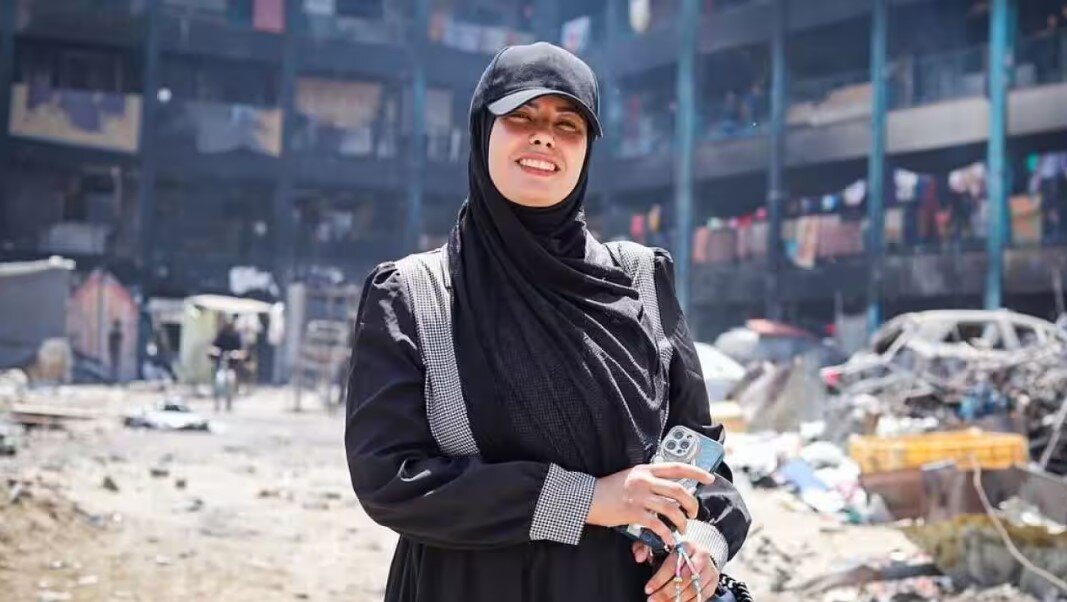Tragic death of Palestinian photojournalist Fatima Hassouna sparks outrage calls for justice
Tragic death of Palestinian photojournalist Fatima Hassouna sparks outrage, calls for justice
TEHRAN- On Wednesday, the Palestinian artistic community mourned the tragic loss of Fatima Hassouna, a 25-year-old photojournalist and artist, who was killed in an Israeli airstrike in northern Gaza.

Reports indicate that she died alongside ten family members, including her pregnant sister, when their home was struck in what can only be described as a devastating attack.
This brutal incident occurred just one day after it was announced that a documentary spotlighting Hassouna's life in Gaza would premiere at a French independent film festival running parallel to Cannes.
The timing of her death raises serious questions about whether she was specifically targeted by the Israeli military. The Israel Defense Forces (IDF) claimed that the strike aimed at a Hamas operative involved in attacks on soldiers and civilians. However, many analysts and critics express skepticism towards such assertions, citing a pattern of misleading narratives from the IDF.
As reported, the military suggested that “prior to the strike, measures were taken to minimize the risk to civilians,” but this is often regarded as implausible.
However, since October 7, besides journalists and media workers, numerous Palestinian artists and intellectuals—including poets, painters, and scholars—have faced deadly attacks, targeting anyone capable of depicting the harsh realities of the ongoing conflict to a broader audience.
Furthermore, the Israeli government recently confronted the uncomfortable aftermath of the Academy Awards, where the four co-directors of the documentary “No Other Land”, which exposes the brutalities of Israeli ethnic cleansing in the occupied West Bank, were honored with the Best Documentary Feature award just six weeks ago.
In response, on March 24, Hamdan Ballal, one of the directors of “No Other Land”, was assaulted by Israeli soldiers and settler militants at his home in the West Bank. This incident raises concerns that discussions among Israeli officials may have taken place regarding measures to prevent future international embarrassments like the Academy Award recognition. The prospect of a pre-emptive airstrike targeting potential award nominees or festival guests aligns disturbingly with the oppressive mindset of the current Israeli ruling elite.
Fatima had hoped to attend the Cannes festival, excited yet conflicted about leaving Gaza. French-Iranian director Sepideh Farsi, who featured her in the documentary "Put Your Soul on Your Hand and Walk," expressed her grief and revealed her efforts to ensure Hassouna's safe movement amidst the conflict. Following the tragic news, Farsi lamented, "Now the whole family is dead," emphasizing her despair over the loss of not only Hassouna but also the future she had been dreaming of.
The atmosphere of fear surrounding journalists in Gaza cannot be overstated. As reported, several journalists have been killed since the onset of the Israel's genocidal war in October 2023.
Colleagues such as Anas al-Shareef from Al Jazeera expressed their sorrow, stating that Fatima had documented the atrocities of war through her powerful lens, capturing the very pain of her people. Another journalist, Miqdad Jameel, urged everyone to remember Hassouna’s photographs and writings, which vividly illustrated Gaza's resilience amidst suffering.
Asma Abo, Fatima's best friend, highlighted her dedication and emotional depth in her work, describing her as "the Eye of Gaza." According to Abo, Fatima possessed an uncanny ability to connect with the individuals she photographed, treating them with genuine empathy. This sentiment was echoed in a statement from France's Association for the Distribution of Independent Cinema (ACID), which expressed horror and solidarity in light of her death, describing her life force as "miraculous."
The Israeli airstrike that claimed Hassouna's life is part of a broader pattern of violence against those reporting from conflict zones. Human rights organizations continue to document the extensive civilian casualties that often contradict claims from the Israeli military regarding their targeting of only militant infrastructure. The Center for the Protection of Palestinian Journalists stressed that approximately 212 journalists have lost their lives since the conflict escalated, further illustrating the grave risks that those in the media face.
In her own words, Fatima once articulated a desire for a “loud death,” hoping that her demise wouldn't be reduced to mere statistics. As the outpouring of grief continues, her colleagues and friends pledge to honor her legacy by continuing to document and amplify the stories of those living in strife. They demand accountability, affirming that Hassouna represented not just a talented photographer but a witness, storyteller, and symbol of resistance against obliteration.
As noted by the Gaza government media office, Hassouna's tragic fate underscores the urgent necessity of safeguarding journalists. They reiterated the call for accountability and protection for media workers, as their roles are crucial in documenting the human cost of conflict.
“Every name on our list of journalists represents a silent voice. Fatima Hassouna's name will not be forgotten, not by Gaza, and not by the world,” stated the Center for the Protection of Palestinian Journalists, underscoring the imperative to remember her contribution to raising awareness about life and struggle in Gaza, even amid overwhelming adversity.
SAB/
source: tehrantimes.com